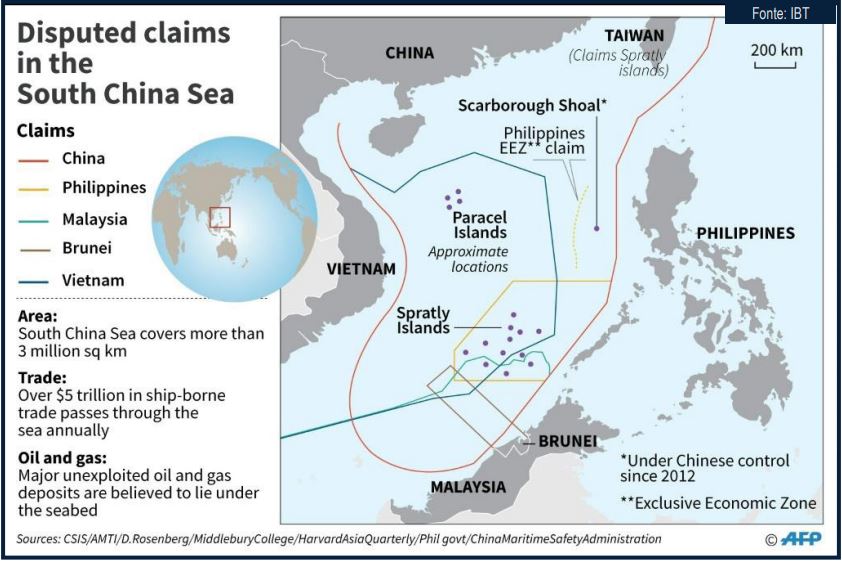Written by Gabriela Veloso and Tina Fernandez
The recent formalization of the Australia-US-UK Strategic Agreement to build nuclear-powered submarines in Australia has sparked discussions, particularly regarding security issues in the Indo-Pacific. The leaders of the countries affirmed the intentions of the partnership to ensure peace and cooperation in the face of the growing disputes over the maritime lands in the region.
In addition to Australia, the agreement could generate advantages and benefits for Asian countries. In this sense, what are the effects of AUKUS in the Philippines?
One of Manila’s major international alliances is the Mutual Defense Treaty with the United States, ratified in 1951, which was intended to contain Soviet advances in Asia. Until the 1990s, the Philippines was home to two of the largest US military bases. Moreover, the two countries concluded the Visiting Forces Agreement, which facilitated the presence of American aircraft, ships, and military personnel on the Philippine territory.
However, the elections of Donald Trump and Rodrigo Duterte have opened the way for China to approach the Philippines more forcefully, where former allies have been drifting apart. At the time, with the goal of reducing the country’s high unemployment rates, Duterte saw opportunities for economic development in the Belt and Road Initiative.
However, Beijing’s conquest of countries’ exclusive economic zones in the South China Sea is inconvenient but not directly counteracted, especially by China’s military superiority. Thus, in 2018, Duterte approved the second phase of the Armed Forces Modernization Plan, to be completed by 2028. At this stage, initially planned at a cost of 5.6 billion US dollars, there will be the acquisition of military means. So far, the Philippines has acquired two guided missile frigates from South Korea, and contracted eight fast-class patrol ships. chaldagAnd remote-controlled weapons stations and Israeli missiles.
There is also a contract with India, which includes the acquisition of supersonic cruise missiles Brahmos and the negotiation of 6 maritime patrol ships with Australia.
For the Philippines, AUKUS comes at an opportune time, as the third phase of its modernization program
The armed forces envisage acquiring six conventional submarines, so the development of the Australian submarine program could push the Filipinos and possibly turn them into nuclear-powered ships. Thus, the agreement encourages the search for new partnerships, brings the Philippines closer to other countries and contributes to a more assertive stance toward China.
Source: GeoCurrent Bulletin

